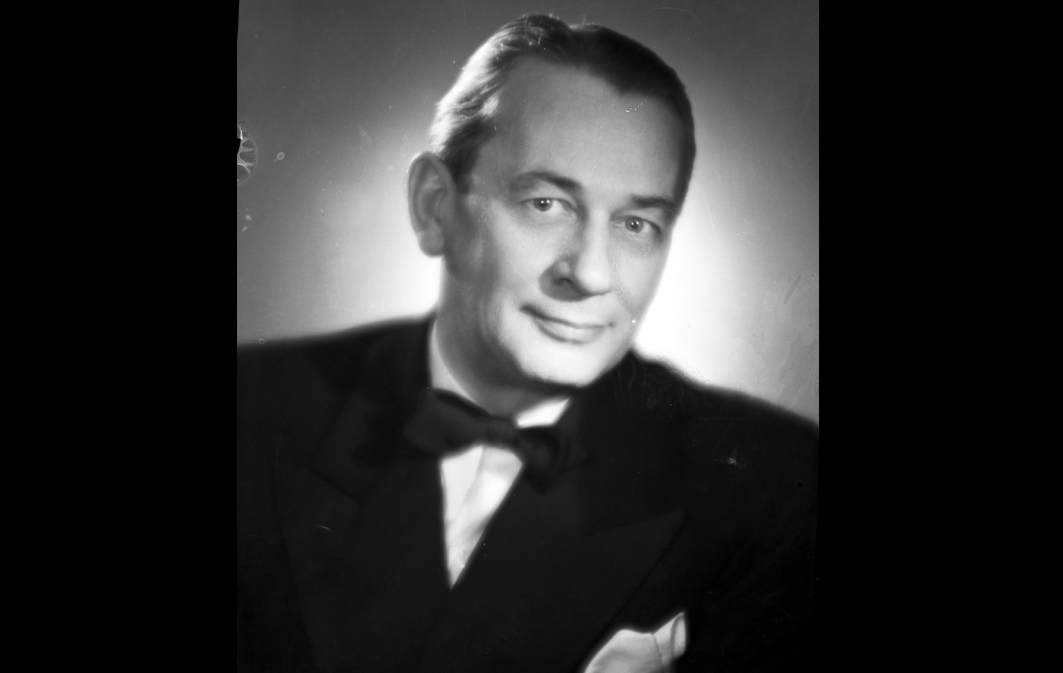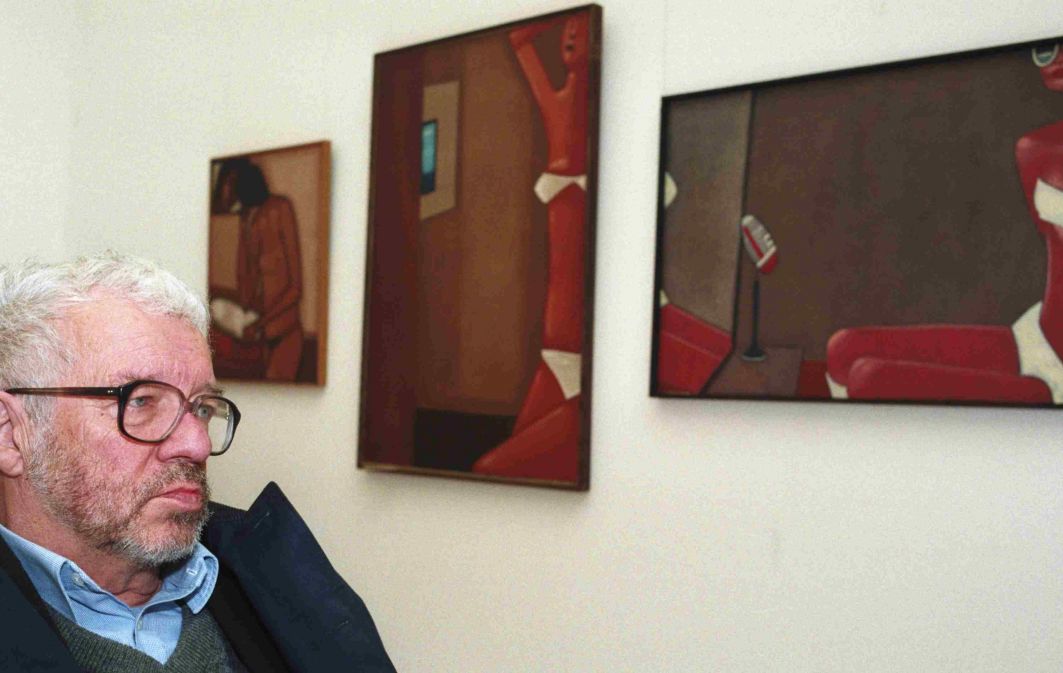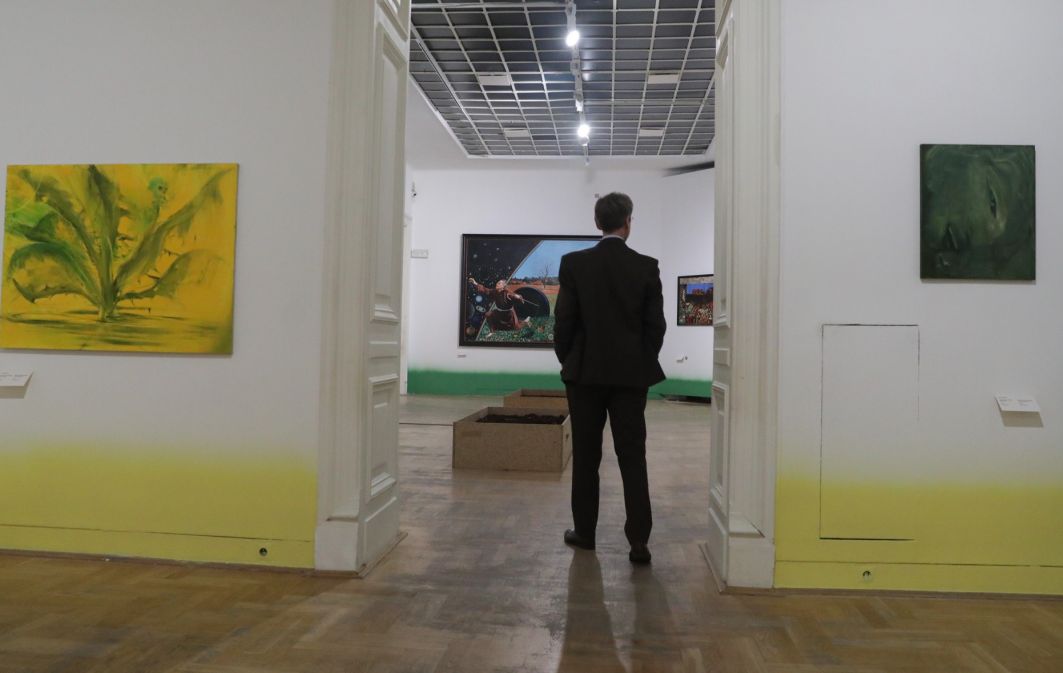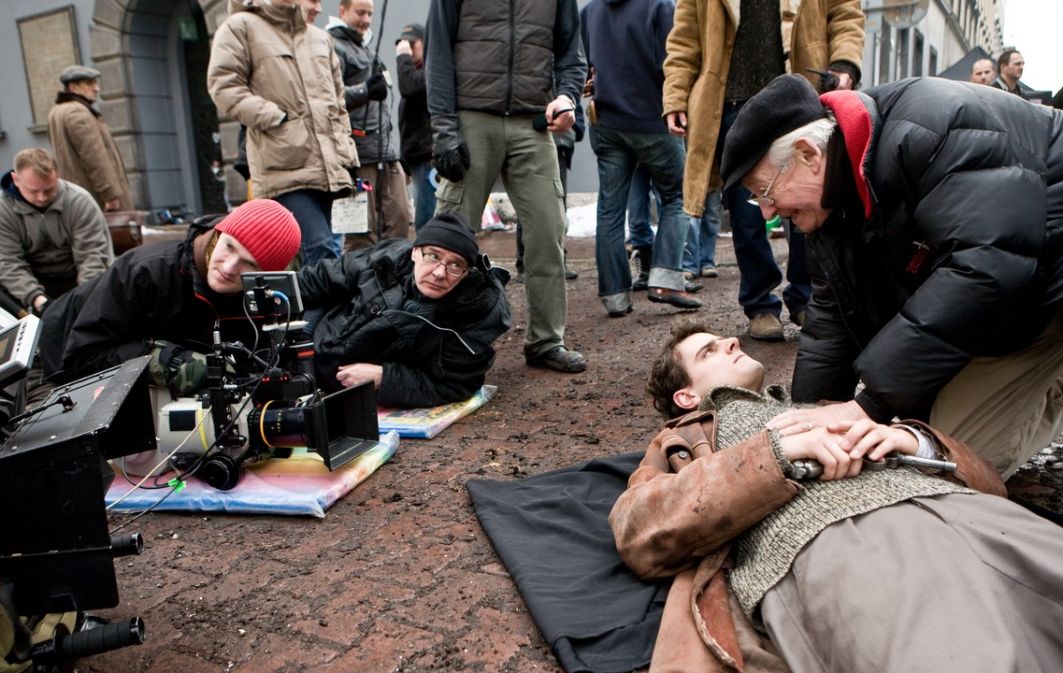After Kotrikadze’s interview with Staķis, Hermanis began to demand that the Dozhd TV channel be deprived of the right to broadcast in Latvia. Ultimately, however, the station destroyed itself by an event in early December. In one of its live programs, the channel’s journalist Alexei Korostelov appealed to Russian viewers to send personal reports on what is happening to the Russians mobilized for the war with Ukraine. At the same time, he suggested that these relations could improve the conditions in which Russian soldiers find themselves. Although Korostelov lost his job after this statement, it was his words that contributed to the fact that the Latvian authorities took away the broadcasting license from the Dozhd TV channel.
Disapproval of “Willkommenskultur”
It is significant that before Russia invaded Ukraine, Hermanis had collaborated with Russian artists (Baryshnikov, although he doesn’t have Russian citizenship, is also an example of this) and worked on Russian literature. But in 2014, when the Russian “little green men” landed in the Crimea and Donbass, the director unequivocally took the side of the Ukrainian state, refusing to stage the opera “Jenůfa” by the Czech composer Leoš Janáček at the Bolshoi Theater in Moscow. And for this gesture he was banned from entering Russia. But surely Hermanis was not an anti-Russian hawk at the time.
After the Russian invasion of Ukraine, however, something changed in him. And the case of the Dozhd television channel also had its share in this. Hermanis has, in a way, become radicalized. He treats Russian oppositionists with suspicion. He assumes that not all of them are Ukraine’s allies. He points out that being Russian is not enough to be against Putin, because you also have to get rid of imperial appetites. And it is worth mentioning that when Dozhd was active in Latvia, it showed a map on which Crimea appeared as part of the Russian Federation. For which The Latvian authorities imposed a fine of EUR 10,000 on the station.
 SIGN UP TO OUR PAGE
SIGN UP TO OUR PAGE

Nonetheless, when it comes to the ideological differences between Hermanis and Baryshnikov, in the context of the play “The White Helicopter” and its adaptation, it is worth noting that the Latvian director – unlike the Russian dancer – looks at the Western civilization with the critical eye of a conservative. And by taking a politically incorrect stance, he does not stop at words.
In 2015, he caused a scandal. This happened during the migration crisis. Hermanis was then collaborating with the Thalia Theater in Hamburg. This institution was involved in helping newcomers from outside Europe. Meanwhile, the Latvian director disapproved of “Willkommenskultur” (the culture of hospitality that is the cornerstone of German migration policy), claiming that among the masses that flocked to the Old Continent there were terrorists. As a result, wishing to express his protest, he broke off his cooperation with the Hamburg theater.
Hermanis included his reflections on the ills of modern times in the diary he wrote in 2015-2016. In it, he attacked, inter alia, the legacy of the new left, which entered the arena of history in the 1960s. It is this legacy, characterized by the blurring of borders and norms, that the director blamed for weakening Europe, which was plagued by such events as the terrorist attacks carried out by jihadists in France in 2015.
It is therefore no surprise that in 2016 Hermanis staged “Submission” at the New Riga Theater, a play based on Michel Houellebecq’s novel. Let us remind that this is a dystopia about how Muslims gains control over France.
In the case of Hermanis we are dealing with an uncompromising artist. And although he himself is not a Catholic, he took an interest in Benedict XVI as a man who went against the tide of contemporary tendencies and for this reason was accused of backwardness. Therefore, it can be expected that the film “White Helicopter” will provoke disputes and controversies.
– Filip Memches
– Translated by Dominik Szczęsny-Kostanecki
TVP WEEKLY. Editorial team and jornalists
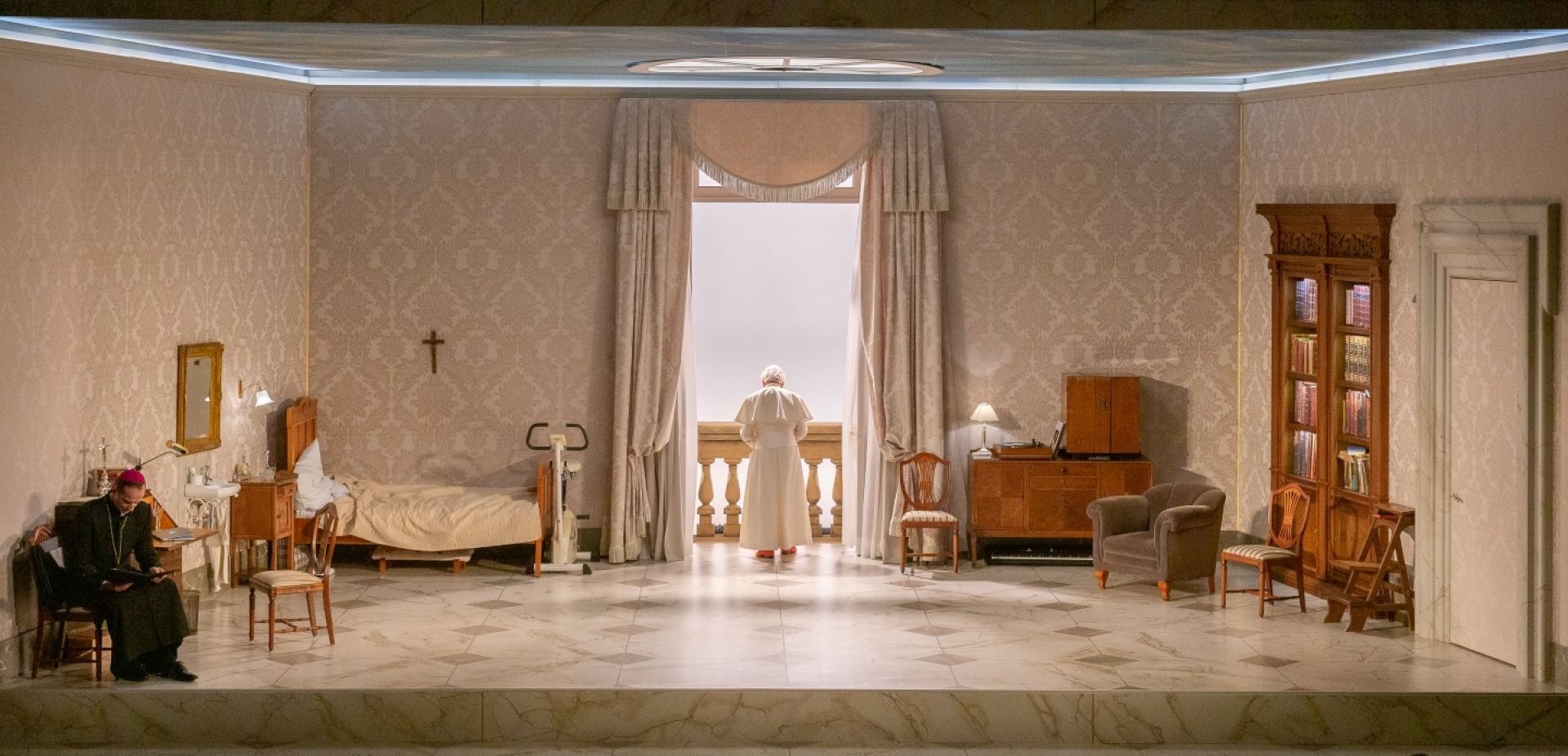
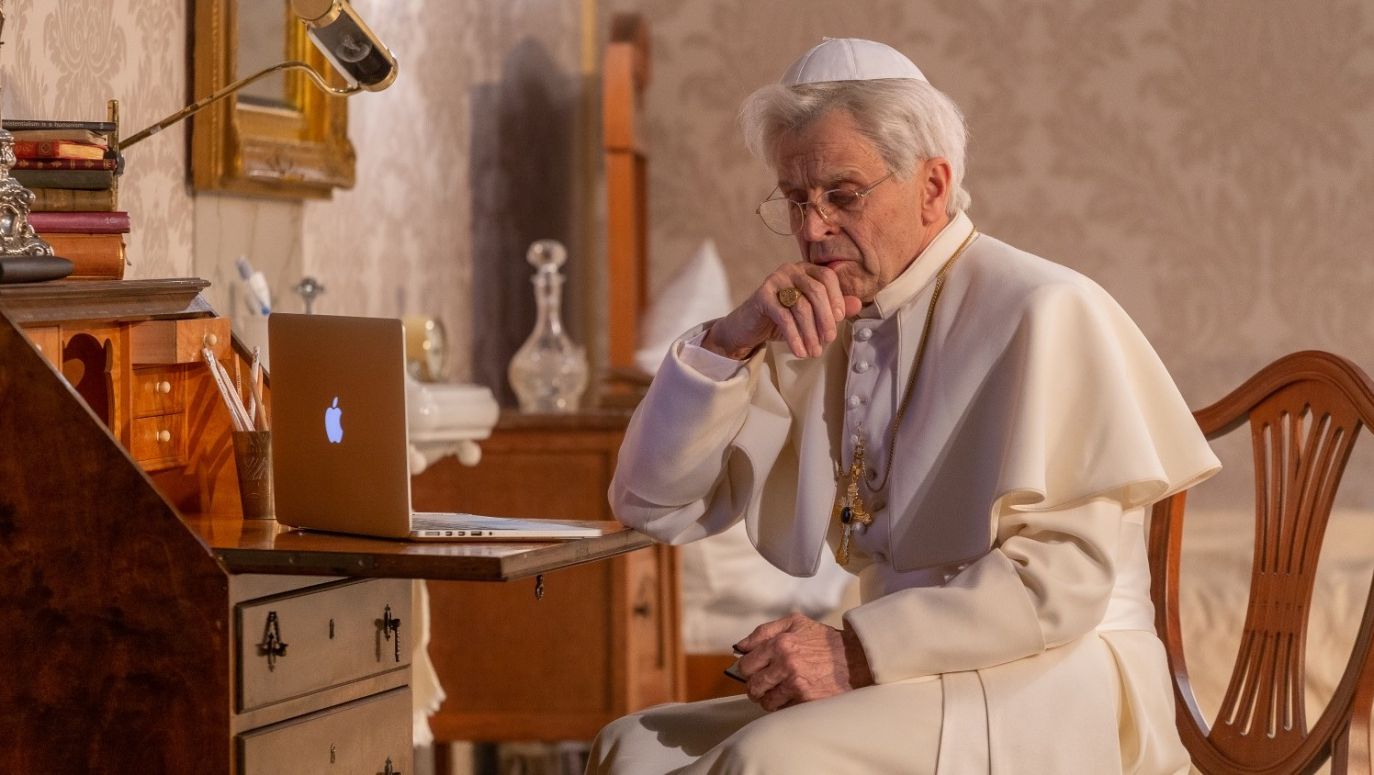

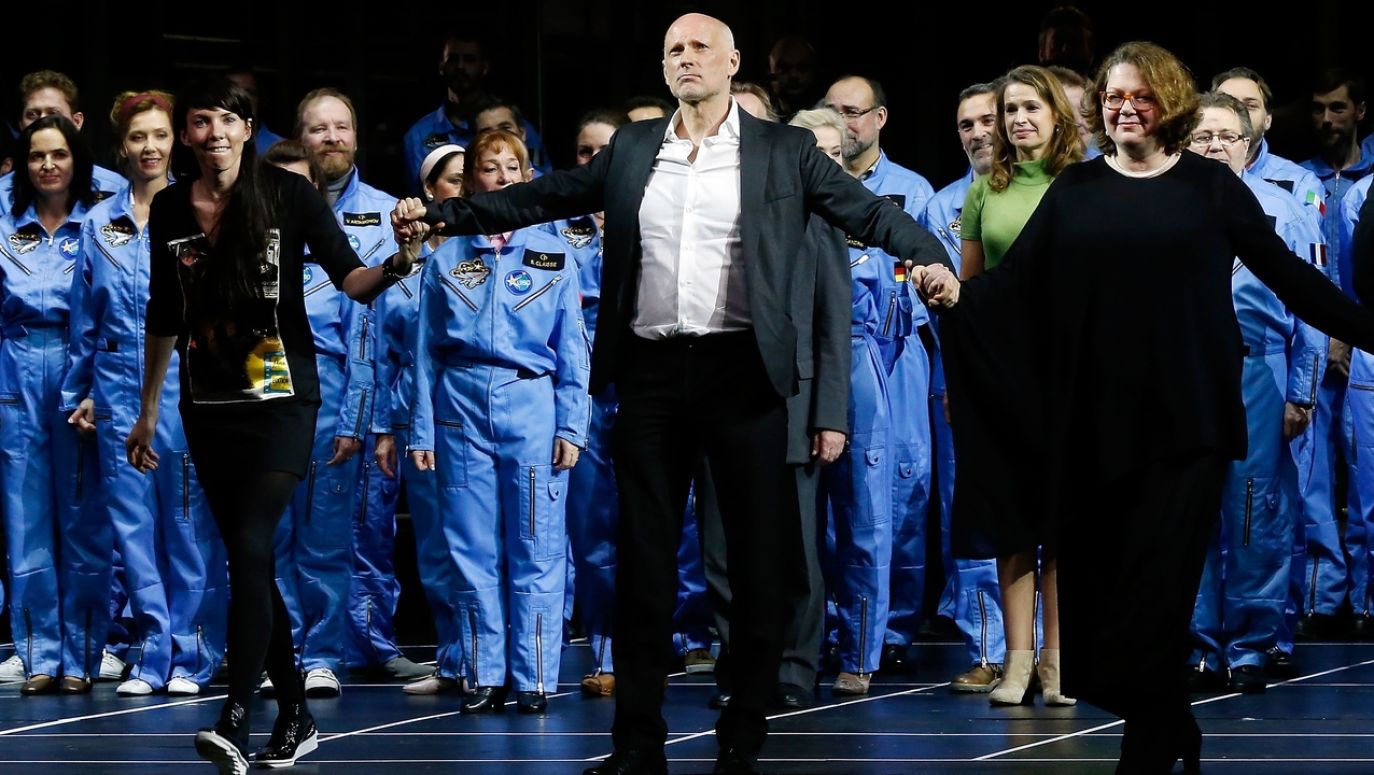
 SIGN UP TO OUR PAGE
SIGN UP TO OUR PAGE
 Nonetheless, when it comes to the ideological differences between Hermanis and Baryshnikov, in the context of the play “The White Helicopter” and its adaptation, it is worth noting that the Latvian director – unlike the Russian dancer – looks at the Western civilization with the critical eye of a conservative. And by taking a politically incorrect stance, he does not stop at words.
Nonetheless, when it comes to the ideological differences between Hermanis and Baryshnikov, in the context of the play “The White Helicopter” and its adaptation, it is worth noting that the Latvian director – unlike the Russian dancer – looks at the Western civilization with the critical eye of a conservative. And by taking a politically incorrect stance, he does not stop at words. 